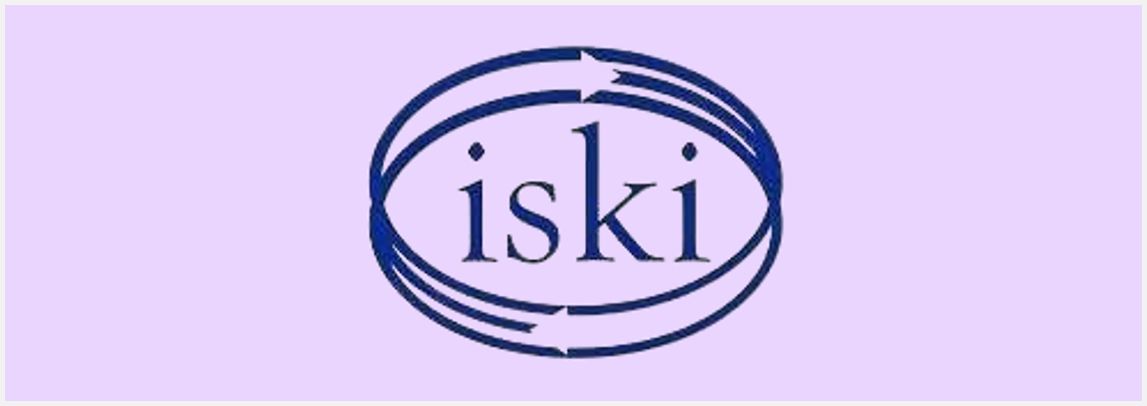VERBAL COMMUNICATION STYLE OF PUBLIC FIGURES ON SOCIAL MEDIA: RESPONSES OF GENERATION Z IN LAMONGAN AS FANS
Abstract
Keywords
Full Text:
PDFReferences
Abdillah, F., & Putro, G. M. H. (2022). Digital Ethics: The Use of Social Media in Gen Z Glasses. Jurnal Komunikasi, 14(1), 158. Retrieved from https://doi.org/10.24912/jk.v14i1.13525
Anggriawan, F. (2017). Gaya Komunikasi Pimpinan Terhadap Motivasi Kerja Karyawan Pada PT. Perusahaan Listrik Negara (PLN) Persero Area Pelayanan Di Samarinda. EJournal Ilmu Komunikasi, 5(4), 260–274.
Bahri, S. (2021). Literasi digital menangkal hoaks covid-19 di media sosial. Jurnal Ilmu Komunikasi (JKMS), 10(1), 16–28. Retrieved from https://jkms.ejournal.unri.ac.id/index.php/JKMS/article/view/7452
Bestari, N. P. (2023). Medsos ganggu mental gen Z, warga RI termasuk parah.
Erwin Juarsa. (2016). Gaya Komunikasi Pemimpin Divisi MIS PT. Trias Sentosa Tbk Krian. Jurnal E-Komunikasi, 4(1), 9.
Febriani, N. (2021). Efektivitas strategi komunikasi pemasaran celebrity endorsement di Instagram terhadap generasi Z. Jurnal Manajemen Komunikasi, 5(2), 238. Retrieved from https://doi.org/10.24198/jmk.v5i2.27682
Girsang, C. N., & Kartikawangi, D. (2021). Two-way symmetrical communication pattern: company strategy to build engagement through social media. Jurnal Komunikasi, 13(2), 271–286. Retrieved from https://doi.org/10.24912/jk.v13i2.11191
Hudson, J., & Loisa, R. (2023). Deskripsi Gaya Komunikasi Ekspresif Penyiaran Modern Berbasis Audio, 392–399.
Husna, N. (2023). Login Di Close the Door : Dakwah Digital Habib Ja’Far Pada Generasi Z. Selasar KPI : Referensi Media Komunikasi Dan Dakwah, 3(1), 38–47. Retrieved from https://ejournal.iainu-kebumen.ac.id/index.php/selasar
Ichwani, T., Damayanti, A., & Rianto. (2019). Hate speech and hoax phenomenons in Indonesia’s social media: utilization in getting company profits. Asian Journal of Behavioural Sciences, 1(2), 17–27. Retrieved from http://myjms.mohe.gov.my/index.php/ajbs/article/view/7575
Ismail, F., & Omar, B. (2018). The effects of physician communication style on patient satisfaction. Jurnal Komunikasi: Malaysian Journal of Communication, 34(3), 73–95. Retrieved from https://doi.org/10.17576/JKMJC-2018-3403-05
Juditha, C. (2018). Interaksi komunikasi hoax di media sosial serta antisipasinya. Journal Pekommas, 3(1), 31–34.
Kertanegara, M. R., Nabila, A., Berlian, C. N., Jeaniffer, E., Dwi, F., & Sabrina, I. (2020). Pengaruh Tingkat Literasi Media terhadap Perilaku Penyebaran Hoax di Kalangan Generasi Z (Studi pada Siswa SMA Negeri 4 Depok). Jurnal Konvergensi, 2(1), 80–161.
Kubheka, B. Z. (2020). Bioethics and the use of social media for medical crowdfunding. BMC Medical Ethics, 21(1), 1–5. Retrieved from https://doi.org/10.1186/s12910-020-00521-2
Lamprou, E., Antonopoulos, N., Anomeritou, I., & Apostolou, C. (2021). Characteristics of fake news and misinformation in greece: the rise of new crowdsourcing-based journalistic fact-checking models. Journalism and Media, 2(3), 417–439. Retrieved from https://doi.org/10.3390/journalmedia2030025
Lesmanah, U., Sugiono, & Hayat. (2020). Pembuatan konten tulisan positif di media sosial sebagai komunikasi preventif dan kontribusi mahasiswa dalam menangkal hoax. Jurnal BUDIMAS, 02(01), 134–141.
Limantoro, F. (2015). Pengaruh Gaya Komunikasi Direktur terhadap Kepuasan Komunikasi Karyawan di PT. Sumarni Mustajab Batu. Jurnal E-Komunikasi, 3(2), 1–11. Retrieved from http://publication.petra.ac.id/index.php/ilmu-komunikasi/article/view/4933
Mahanani, P. A. R. (2014). Media sosial dan gaya komunikasi. Jurnal Komunikator, 6(1).
Mardika, I. P., & Wulandari, N. P. A. D. (2021). Peran media sosial dalam pemberitaan hoax pasca covid 19, 1(2), 153–163. Retrieved from https://jkms.ejournal.unri.ac.id/index.php/JKMS/article/view/7452
Martianto, R. W. U., & Toni, A. (2021). Analisis Semiotika Gaya Komunikasi Milenial Bambang. Jurnal Ilmu Komunikasi, 4(1), 13–28.
Mutawakkil, M., & Nuraedah, N. (2019). Gaya Komunikasi Dosen dalam Pembelajaran Mahasiswa. Communicatus: Jurnal Ilmu Komunikasi, 3(2), 25–42. Retrieved from https://doi.org/10.15575/cjik.v3i2.5765
Nisa, F. K., Viratama, A. B., & Hidayanti, N. (2020). Analisis Pencarian Informasi Remaja Generasi z dalam Proses Pengambilan Keputusan Belanja Online (Analisis pada Mahasiswa Ilmu Komunikasi Universitas Tidar). Komunikologi: Jurnal Pengembangan Ilmu Komunikasi Dan Sosial, 4(2), 146. Retrieved from https://doi.org/10.30829/komunikologi.v4i2.8377
Pakpahan, R. (2017). Analisis fenomena hoax diberbagai media. Konferensi Nasional Ilmu Sosial & Teknologi (KNiST), 1(2013), 479–484. Retrieved from http://seminar.bsi.ac.id/knist/index.php/UnivBSI/article/view/184
Pambudy, N. M. (2023). Kecemasan gen Z akibat media sosial.
Parhan, M., Jenuri, & Islamy, M. R. F. (2021). Media sosial dan fenomena Hoax: tinjauan islam dalam etika bekomunikasi. Communicatus: Jurnal Ilmu Komunikasi, 5(1), 59–80. Retrieved from https://doi.org/10.15575/cjik.v5i1.12887
Park, K., & Rim, H. (2020). “Click first!”: the effects of instant activism via a hoax on social media. Social Media and Society, 6(2). Retrieved from https://doi.org/10.1177/2056305120904706
Pradhana, Y. (2021). Utilization of virtual community as a communication media for pokemon go game group ( JPR ) using social media. Jurnal Komunikasi, 13(2), 200–214.
Pratikto, R. G., & Kristanty, S. (2018). Literasi Media Digital Generasi Z (Studi Kasus Pada Remaja Social Networking Addiction Di Jakarta). Communication, 9(2), 19. Retrieved from https://doi.org/10.36080/comm.v9i2.715
Priambodo, G. A. (2019). Urgensi literasi media sosial dalam menangkal ancaman Berita hoax di kalangan remaja. Jurnal Civic Hukum, 4(2), 130–137.
Rahmadhany, A., Aldila Safitri, A., & Irwansyah, I. (2021). Fenomena penyebaran hoax dan hate speech pada media sosial. Jurnal Teknologi Dan Sistem Informasi Bisnis, 3(1), 30–43. Retrieved from https://doi.org/10.47233/jteksis.v3i1.182
Rawanoko, E. S., Komalasari, K., Al-Muchtar, S., & Bestari, P. (2021). The use of social media in ethic digital perspective. Jurnal Civics: Media Kajian Kewarganegaraan, 18(1), 148–157. Retrieved from https://doi.org/10.21831/jc.v18i1.40036
Samuel, G., & Buchanan, E. (2020). Guest editorial: ethical issues in social media research. Journal of Empirical Research on Human Research Ethics, 15(1–2), 3–11. Retrieved from https://doi.org/10.1177/1556264619901215
Saskia, C., & Nistanto, R. K. (2023). 15 medsos favorit orang Indonesia, nomor 1 bukan Instagram.
Selvan, T., & Ganesan, K. (2021). Digital ethics in utilization of social media by the undergraduate students, (March).
Siraj, N., Nurfalah, F., Listiana, R. A., & Santika, R. N. (2021). Pengenalan beretika komunikasi dalam sosial media di kalangan remaja SMA windu wacana kota Cirebon. Altruis Journal of Community Services, 2(2), 32–36. Retrieved from https://doi.org/10.22219/altruis.v2i2.16546
Sitepu, Y. S., Harahap, H., & Trimurni, F. (2021). Digital literacy of social media users in medan city in facing hoax. International Journal of Modern Trends in Social Sciences, 4(15), 97–113. Retrieved from https://doi.org/10.35631/ijmtss.415009
Sormanen, N., & Lauk, E. (2016). Issues of ethics and methods in studying social media. Media and Communication, 4(4A), 63–65. Retrieved from https://doi.org/10.17645/mac.v4i4.793
Sucia, V. (2017). Pengaruh Gaya Komunikasi Guru Terhadap Motivasi Belajar Siswa. Komuniti : Jurnal Komunikasi Dan Teknologi Informasi, 8(5), 112–126. Retrieved from https://doi.org/10.23917/komuniti.v8i5.2942
Suharyanti, S., & Suharyanti, S. (2021). Kampanye Generasi Berencana (GENRE), Sikap Generasi Z di Jakarta, dan Penetrasi Media Sosial Selama Pandemi COVID-19. Jurnal Studi Komunikasi Dan Media, 25(2), 111. Retrieved from https://doi.org/10.31445/jskm.2021.3762
Syahputra, H. R., Meriza, I., Arianda, I., Hijrah, H., Junaidi, J., Khairina, U., & Tisa, M. (2022). Optimalisasi Media Sosial Pada Generasi Z Melalui Pelatihan Content Creator. Meuseuraya - Jurnal Pengabdian Masyarakat, 1(2), 51–58. Retrieved from https://doi.org/10.47498/meuseuraya.v1i2.1357
Syahputri, D. P. (2022). Pengaruh sosial media pada generasi Z.
Taufano, R., & Irwansyah, I. (2020). Brand Personality Achmad Zaky Sebagai Chief Executive Officer Bukalapak Dalam Media Sosial Instagram. Jurnal Komunikasi, 12(2), 211–230. Retrieved from https://doi.org/10.24912/jk.v12i2.7268
Tubbs, S. L., & Mos, S. (2005). Human communication (4th ed.). Bandung: Remaja Rosdakarya.
Wahjuwibowo;, I. S., & Hereyah, Y. (2016). How to manage social media hoaxes. 2nd International Conference on Corporate and Marketing Communication (ICCOMAC), 5(2), 16–27.
Wells, D. M., Lehavot, K., & Isaac, M. L. (2015). Sounding off on social media: the ethics of patient storytelling in the modern era. Academic Medicine, 90(8), 1015–1019. Retrieved from https://doi.org/10.1097/ACM.0000000000000668
Young, J. A., Mcleod, D. A., & Brady, S. R. (2018). The ethics challenge: 21st century social work education, social media, and digital literacies. Journal of Social Work Values & Ethics The Journal of Social Work Values and Ethics, 15(1), 1–22. Retrieved from http://jswve.org/download/15-1/15-1-Articles/13-The-Ethics-Challenge-15-1.pdf
Yudhistira, A. W. (2022). Dilema Dua Sisi Media Sosial di Tangan Gen Z.
DOI: https://doi.org/10.36914/jikb.v9i2.1062
Refbacks
- There are currently no refbacks.
Copyright (c) 2024 Jurnal Ilmu Komunikasi dan Bisnis
Publisher: Sekolah Tinggi Ilmu Komunikasi dan Sekretari Tarakanita Copyright








